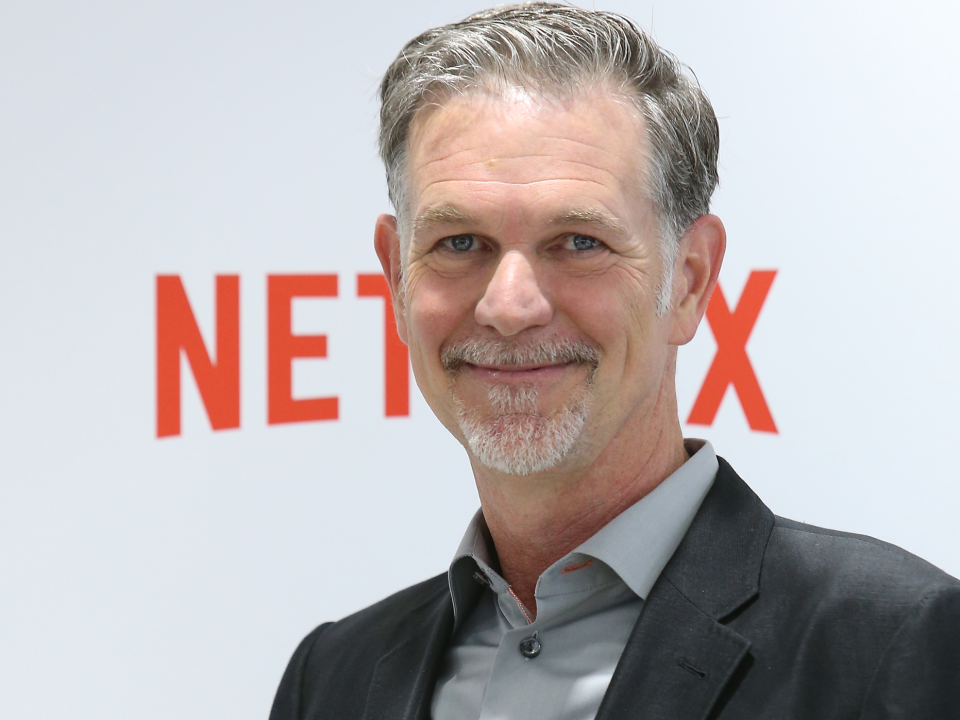Tech companies are suffering from a success delusion
It’s been brutal for Big Tech lately.
Not only have the stocks tanked, but there’s been a string of highly damning articles describing the companies as bastions of bizarrely out of touch executive behavior.
Call it a one-two comeuppance punch.
Is there any connection between the stock’s sinking and corporate cluelessness? In an odd way, maybe yes.
I’ll explain in a minute, but first let’s spell out the problems. First, the sorry state of their stocks, which have been hit particularly hard just this week.
-Alphabet (aka Google) (GOOGL) is off 17% from its recent high.
-Amazon (AMZN) reported an OK quarter on Thursday, but its fourth quarter guidance was disappointing. The stock continues its swoon, now off 19% from its peak.
-Netflix (NFLX), which blew up a few months ago, is 28% off its high.
-And Facebook (FB), in a world of trouble, has lost a third of its value since its peak. A third!
That’s hundreds of billions of dollars of losses.
(It’s worth noting that the oldsters Microsoft and Apple are only off 7% and 8% from their peaks, respectively.)
Even worse, though, is the reputational shellacking these companies have taken. Yes, stories about company arrogance and hubris are nothing new. What’s astonishing is that this behavior hasn’t abated at all – in fact, it seems to be even more rampant.

Facebook has been the poster child for some time now (note that it’s the biggest loser of the bunch), but this week the company managed to avoid negative headlines.
For the others? It was painful. Here’s just a sampling of some of the most tone-deaf quotes and anecdotes:
A damning New Yorker article laid out the secretive machinations of Google’s fight against former, self-important rogue exec named Anthony Levandowksi who defected to Uber. Says Levandowksi: “The only thing that matters to me is the future…I don’t even know why we study history. It’s entertaining, I guess—the dinosaurs and the Neanderthals and the Industrial Revolution and stuff like that. But what already happened doesn’t really matter. You don’t need to know that history to build on what they made. In technology, all that matters is tomorrow.”
Uh, right.
Then there’s a New York Times article, also about Google, in this case paying off top executives accused of sexual misbehavior tens of million in severance, including Andy Rubin, creator of the Android operating system, who reportedly swept through Google like a geeky Lothario. Rubin also allegedly had “ownership relationships” with women while he was married. Here’s a delightful little text to one of them: “You will be happy being taken care of,” he wrote. “Being owned is kinda like you are my property, and I can loan you to other people.”
Hard to know where to begin with that one.
By the way, Google CEO Sundar Pichai responded to the article by noting that 48 people at Google had been fired for sexual harassment over the past two years. Is that supposed to be comforting?

And let’s not forget the Wall Street Journal piece on Netflix and its cultish culture, similar to the “radical transparency” practiced by hedge fund Bridgewater. The article detailed employees constantly in fear of being fired, sometimes in front of groups of co-workers. And then there’s this little gem from Netflix CEO Reed Hastings:
“When news of the firing leaked to the trade press, Mr. Hastings, irritated at a very un-Netflix breach of trust, fired off an email to his executive staff saying whoever leaked it should report themselves to HR. “You’ll get a discreet quiet exit, and our generous severance package if you do it now,” he wrote. A few weeks later, Mr. Hastings apologized for his emails needling his executives over the leak. “The lesson,” Mr. Hastings wrote in another note to staff, “is that crazy stuff happens in the fog of war.”
Memo to Reed: You run a movie streaming platform, not the 82nd Airborne.
So what does this off-kilter behavior have to do with stock prices? Well, everything. One of the big reasons these executives behave this way is that they are working in a bubble. Call it a success delusion. You invent a great product at a successful company and the stock goes up and eventually you begin to think you can do no wrong. You begin to believe that the higher stock price and your increased net worth reflect deep wisdom, not only when it comes to product management, but also people management, organizational behavior and personal behavior. Newsflash: It usually doesn’t. All of a sudden you aren’t just some coder anymore, you’re a senior executive at a hugely high-profile company making $20 million a year, overseeing 3,500 people. Yikes is an understatement.
And guess what? All those people around you who are cheering your every move are only doing so because they’re getting richer too. In Silicon Valley, mo’ money has abrogated values and reason. For now. I think the crazy rich behavior is only tolerated when the tide is rising. When the tide goes out, not so much. Bad behavior was enabled by rising stock prices. Now that stock prices are declining, I bet you’re going to see a lot less of the success delusion. You may even see some failure reality.
One of the qualitative subjective metrics I use to measure companies is what I call the PCF, or parents cool factor. In other words: what would your parents say if you were just out of college and took a job at Company X.
Now imagine if Company X was Facebook or Google. Think about the stocks and headlines.
Not what it used to be, right?
Andy Serwer is editor-in-chief of Yahoo Finance.


